Slope Stabilization with SDA Bolts: Benefits & Applications
Time:2025-08-19From:sinorock View:
Slope stabilization is critical for ensuring the safety and longevity of infrastructure projects, such as highways, railways, and tunnels. In challenging geological conditions—like loose or collapsible soils—traditional anchoring methods often fall short. Self-drilling anchor bolts provide an effective solution by integrating drilling, grouting, and anchoring into a single efficient process. Let’s explore how SDA bolts achieve this.
Key Applications of SDA Bolts in Slope Stabilization
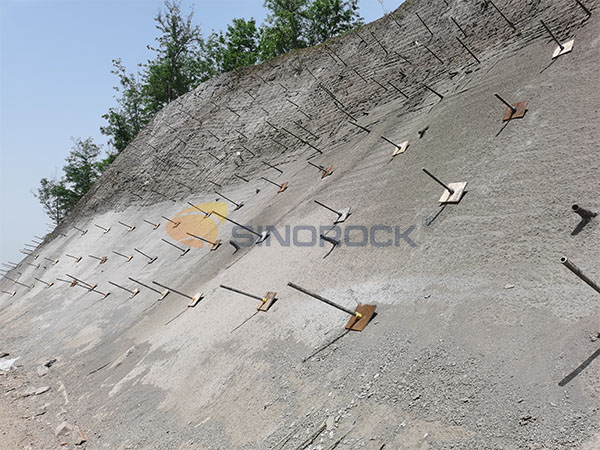
Self-drilling anchor bolts play a key role in slope stabilization projects where geological conditions challenge conventional methods. Their unique design, featuring a hollow core and integrated drill bit, allows them to perform reliably in loose, collapsible, or fractured soils. Key applications include:
Retaining Wall Reinforcement: Retaining walls along highways and railways often face instability due to loose fill layers. SDA bolts provide robust anchorage by penetrating deep into stable strata, preventing collapse.
Highway and Railway Slopes: Slopes adjacent to transportation corridors require durable solutions to withstand weathering and erosion. SDA bolts, combined with steel mesh and sprayed concrete, create a cohesive stabilization system.
Tunnel Entrance Stabilization: Tunnel portals in mountainous regions often encounter fractured rock or soft soil. SDA bolts anchor these slopes, ensuring structural integrity during construction and long-term use.
Emergency Repairs: For slopes showing signs of distress, such as cracks or sliding, SDA bolts offer a rapid, reliable solution, minimizing downtime and ensuring safety.
The SDA bolt’s ability to function as both drill rods and anchors eliminates the need for casing pipes, reducing labor and material costs while accelerating project timelines.
Construction Methods for SDA Bolts
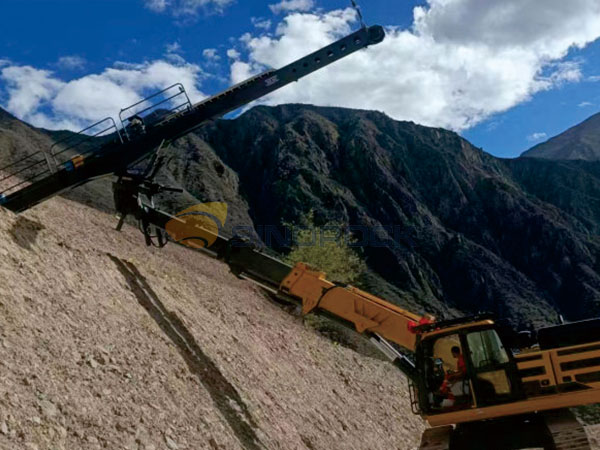
The installation of SDA bolts is a streamlined process that enhances efficiency and ensures industry-standard compliance. Below is the step-by-step construction process for SDA bolts.
1. Site Preparation
Before installation, assess the site to determine if scaffolding is needed. For stable, level terrain, a dedicated SDA bolt drilling rig can be used. In challenging geological conditions, a split-type drilling rig is recommended. This rig connects the power station, control panel, and main unit via hydraulic lines, offering flexibility and ease of operation in confined or uneven spaces.
2. Assembling the Anchor Bolt
Sinorock SDA bolts consist of a hollow anchor bar, drill bit, coupler, plate, and nut. Optional components, such as centralizers or wedge-shaped bodies, can be added based on project requirements. The drill bit is attached to one end of the hollow rod, and coupling sleeves extend the bolt to the desired length. The fully threaded design enables easy cutting and connection, ensuring adaptability to various depths and conditions.
3. Connecting to the Drilling Rig
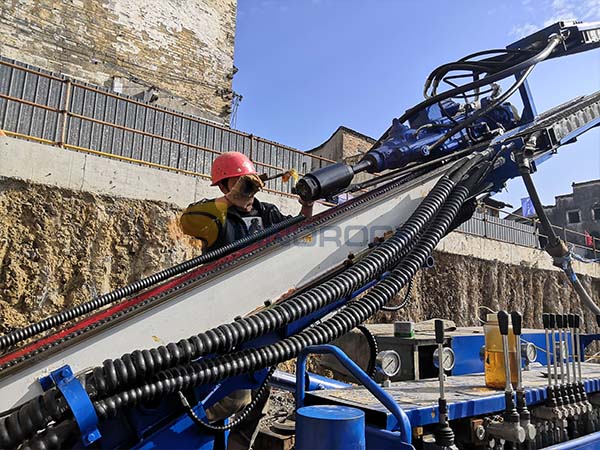
The SDA bolt is connected to a dedicated drilling rig via an adapter, linking the rock bolt’s tail to a grouting machine. This setup enables simultaneous drilling and grouting, enhancing efficiency. Split-type drilling rigs are particularly advantageous due to their mobility, ease of installation, and adaptability to diverse terrains. These rigs can be modified to meet specific project needs, making them a versatile choice for contractors.
4. Drilling and Grouting
Clear the drilling area of debris before starting. The SDA bolt serves as both the drill rod and the anchor, eliminating the need for casing pipes used in traditional methods. As the rock bolt drills into the slope, grout is injected simultaneously, filling the borehole and enhancing anchorage. This integrated process ensures faster construction and stronger bonding compared to traditional follow-pipe drilling.
5. Installing the Plate and Nut
Once drilling and grouting are complete, install the plate and nut to secure the anchor. Sinorock’s components are designed for seamless compatibility, ensuring easy installation and optimal load-bearing capacity. The fully threaded bolt allows for precise torque application, maximizing the self drilling soil nail’s holding strength.
Case Study: Xingyi Retaining Wall Reinforcement Project
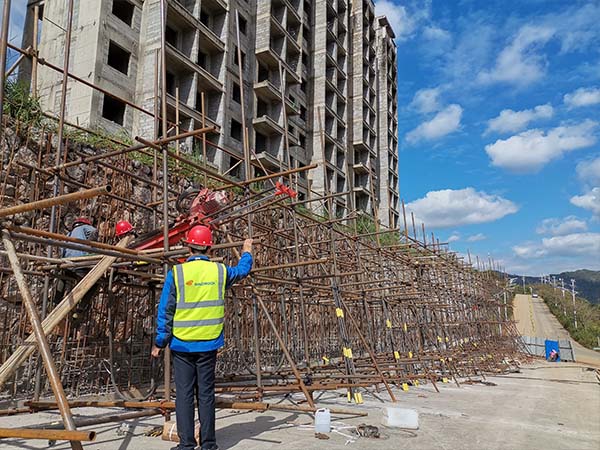
A retaining wall in Xingyi faced critical instability due to loose fill layers, which caused traditional rebar anchors to fail as boreholes repeatedly collapsed. Sinorock’s self-drilling anchor bolts were deployed, drilled 9 meters deep—penetrating a 4-meter retaining wall and a 5-meter fill layer—to anchor securely into bedrock. The solution integrated SDA bolts with anti-slide piles, steel mesh, and shotcrete, creating a resilient reinforcement system. The SDA bolts’ design prevented borehole collapse, ensuring uninterrupted construction and long-term stability.
Key Advantages of Sinorock SDA Bolts:
• Adaptability: Effective in loose, collapsible, or fractured soils.
• Efficiency: Combines drilling, grouting, and anchoring in a single step, reducing project timelines.
• Durability: High-strength materials and corrosion resistance ensure decades of service.
• Versatility: Proven in diverse applications, including retaining walls, highways, and tunnels.
By overcoming the limitations of conventional methods, Sinorock SDA bolts have proven to be a successful solution for geotechnical challenges.
Why Choose Sinorock SDA Bolts?
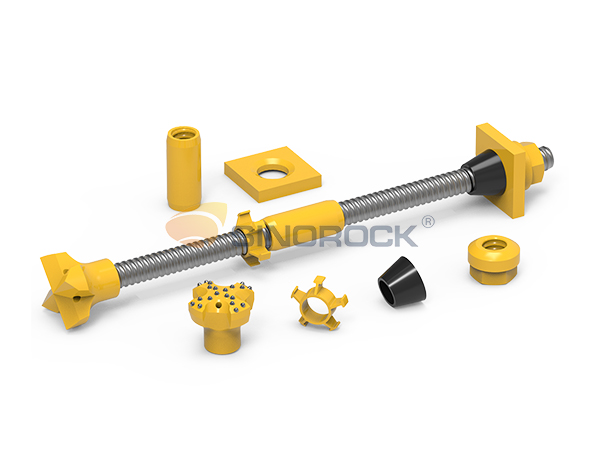
Compared to traditional rebar anchors, Sinorock SDA bolts offer significant advantages. While rebar anchors have lower material costs, their labor-intensive installation increases overall expenses. SDA bolts, though higher in material cost, reduce labor dependency and accelerate construction, resulting in lower comprehensive costs.
For contractors seeking reliable slope stabilization solutions, Sinorock provides comprehensive support, including customized SDA bolts systems and technical guidance. Contact Sinorock for expert advice and tailored solutions.
latest news
-
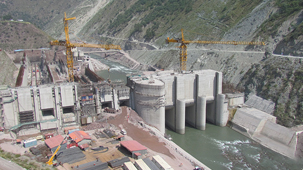
- What Are the Applications of SDA Bolts in Hydropower Stations?
- Time:2025-08-21From:This Site
- Learn how self-drilling anchor bolts enhance slope stability, tunnel support, and dam reinforcement in complex geological conditions at hydropower stations. Optimize hydropower projects with efficient, cost-effective, and eco-friendly solutions.
- View details
-
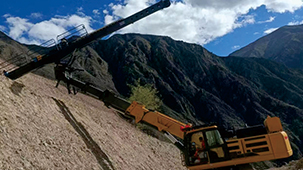
- Slope Stabilization with SDA Bolts: Benefits & Applications
- Time:2025-08-19From:This Site
- Discover how self-drilling anchor bolts (SDA bolts) provide superior slope stabilization for highways, railways, and tunnels. Learn their key benefits, installation process, and real-world applications in loose or collapsible soils.
- View details
-
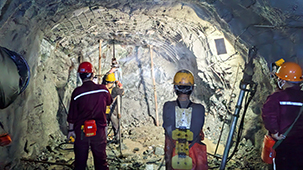
- How Self-Drilling Rock Bolts Enhance Tunnel Support in Fractured Rock?
- Time:2025-08-15From:This Site
- Discover how self-drilling rock bolts enhance tunnel support in fractured rock. Learn their benefits, installation steps, and real-world applications for safe, efficient tunneling.
- View details
-
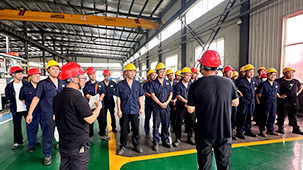
- Sinorock 2025 Quality Month | Strengthening Quality Foundations, Empowering Product Excellence
- Time:2025-08-13From:This Site
- Sinorock’s 2025 Quality Month, themed “Strengthening Quality Foundations, Empowering Product Excellence,” successfully concluded, reinforcing our commitment to superior product quality.
- View details
-
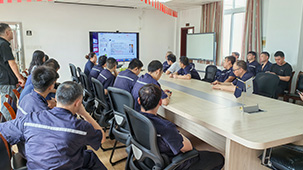
- Sinorock Safety Month 2025 | Everyone Speaks Safety, Everyone Can Respond
- Time:2025-07-03From:This Site
- Sinorock Safety Month 2025, centered on the theme "Everyone Speaks Safety, Everyone Can Respond - Spot Workplace Hazards," has wrapped up successfully!
- View details
-
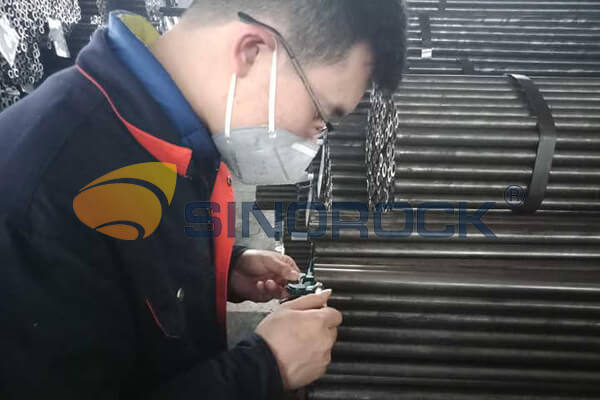
- Quality Control: the Vital Factor of A SDA Bolt Factory
- Time:2025-01-09From:This Site
- Sinorock’s comprehensive quality control system, from supplier management to outgoing inspections, ensuring the highest standards for self-drilling anchor bolts in construction.
- View details
-
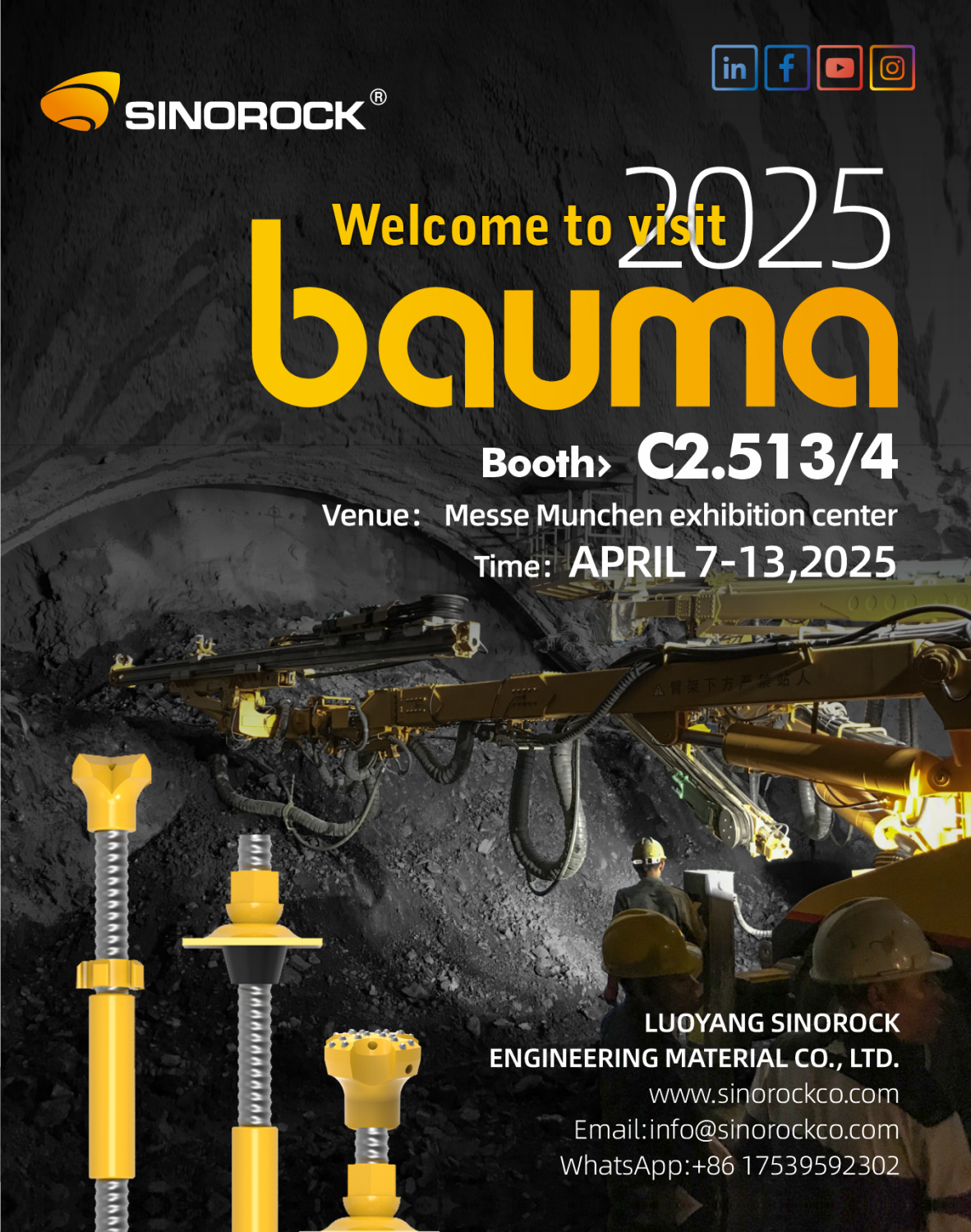
- Sinorock Invites You to Explore Proven Self-Drilling Anchor Bolt Solutions at bauma 2025
- Time:2025-03-07From:This Site
- From April 7–13, 2025, explore Sinorock’s Self-drilling anchor bolt solution at Booth C2.513/4 in Hall C2 of the Messe München Exhibition Center (Munich, Germany).
- View details
-
.jpg)
- SINOROCK to Attend EXPOMINA PERÚ 2024 in Lima, Peru
- Time:2024-08-10From:This Site
- Sinorock to Attend EXPOMINA PERÚ 2024 in Lima, Peru
- View details
-
.jpg)
- SINOROCK to Participate in MINING AND METALS CENTRAL ASIA 2024
- Time:2024-08-08From:This Site
- SINOROCK to Participate in MINING AND METALS CENTRAL ASIA 2024
- View details
 Download
Download 


